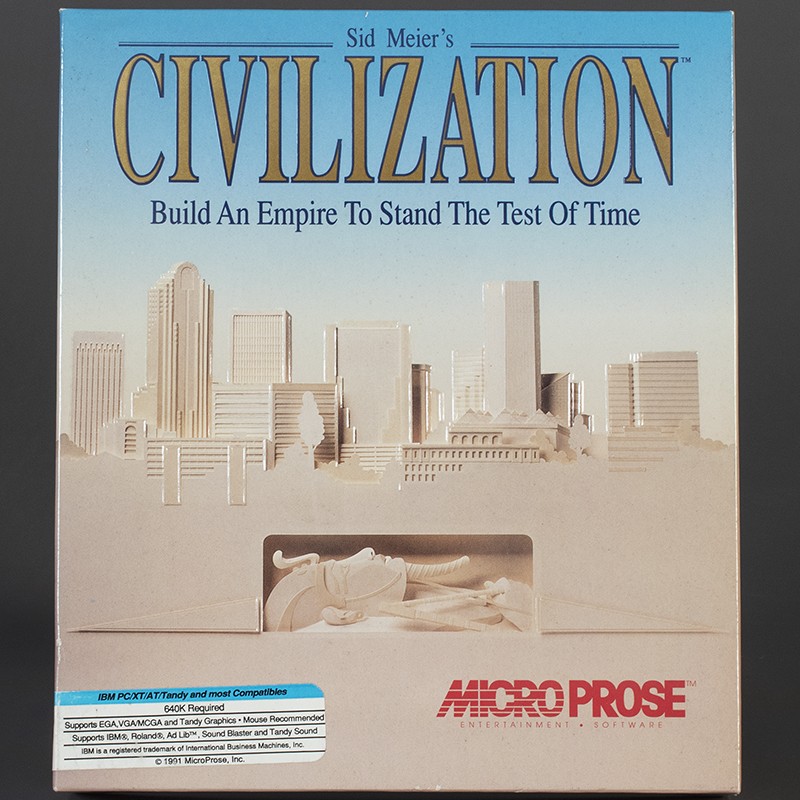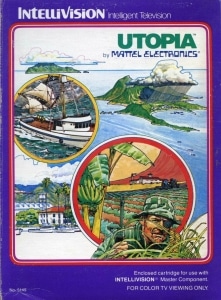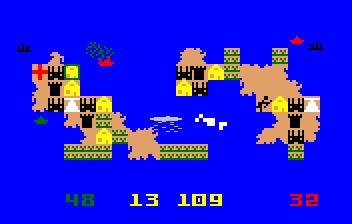The games I love to play as an adult—strategy games such as Age of Empires: The Asian Dynasties and Sid Meier’s Civilization IV—are clearly influenced by my childhood favorites, perhaps most significantly Utopia for Mattel Intellivision. If you’re not familiar with this groundbreaking simulation game, I suggest you check it out.

Will Wright revolutionized the game industry, yet nearly a decade before his city-building classic SimCity launched, legendary game designer Don Daglow produced Utopia, the industry’s first construction and management simulation game. For the first time gamers found themselves budgeting national expenditures, balancing military necessities with civic infrastructure needs, and pondering the community’s well-being. And as if this wasn’t enough to worry about, at any point a hurricane might lay waste to all you had built or a rebel faction might rise to destroy your factory or school. As a result of Utopia, gamers experienced new thought-provoking concepts and the industry embraced new opportunities and ideas for future games.

After receiving the newly released game as a holiday gift in 1982, it quickly became my favorite. At 10 years old, this was the only game that didn’t get old quickly; as with chess, the more I played and learned about tactics, “governance” tactics in this case, the more fun I had. Although Utopia was a two-player game, I honed my skills with numerous individual practice sessions.
The game can be played cooperatively or competitively, and I clearly remember the first time I launched preemptive military operations against a neighborhood friend. It was a coordinated strike; just as rebel soldiers razed my friend’s cities, naval assets destroyed his fishing fleet. Defeated, he cried and went home. My mother accused me of physically hitting him. “In the future” she said, “you have to “play nice” with those video games.”
Several months later, my friend got over the betrayal and started to play competitively.

Don Daglow’s recent visit to Strong National Museum of Play and NCHEG evoked the same sense of excitement I experienced when I first played his game. I had Intellivision set up in our NCHEG Game Lab, and after I reminisced at length about my Utopia play experience, Don wasn’t surprised when I challenged him to a game. In fact, he readily agreed to it. Imagine a CHEGhead playing the master game designer himself!
Who won, you ask? I can’t tell you that, but let’s just say I didn’t get embarrassed. One’s childhood gaming skills never die—especially if you practice for hours and hours before you challenge someone. Be careful of those masters though.
 Hours 10 a.m.–5 p.m. | Fri. & Sat. till 8 p.m.
Hours 10 a.m.–5 p.m. | Fri. & Sat. till 8 p.m.